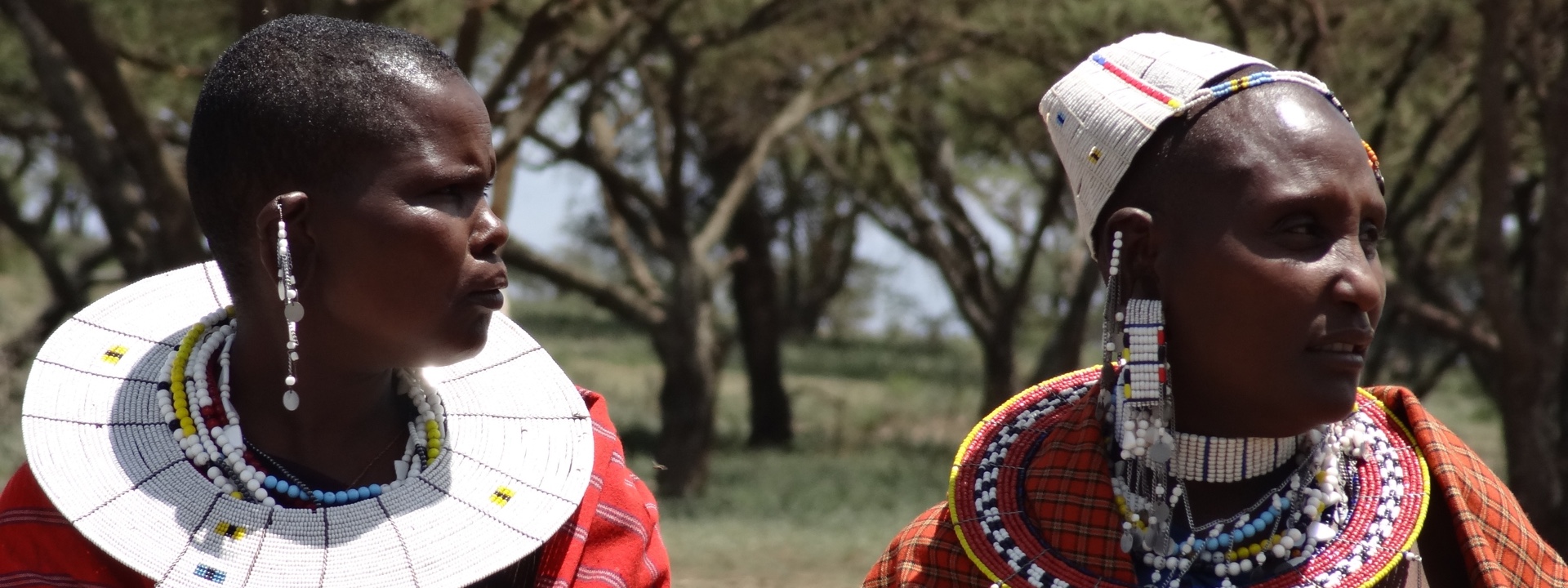
Maasai Girls
Maasai Girls
QR Link
Preparation
Transcript
José Cruz: Maasai.
Haruka: Ah! Maasai. About marriage of the younger girls who were born in Maasai. (Mm-hmm) Right?
José: Mm-hmm. What did you think of that?
Haruka: Well, I actually have learned uh the same kind of thing in the (Cool) university class- university the the cla- in the class which is held in my university. (Mm) And uh in that class I learned about the, uh in Japanese we we called it uh katsurei.
José: What does that mean?
Haruka: Just like um, at certain age when um, in that kind of like, African countries- In African countries, when the girl uh turn to a certain age like maybe five or six, (Mm-hmm) when they are still young (Mm-hmm) uh their family, like especially their mother or their grand- grandmother take her take her (Mm-hmm) to the kind of like uh, not a magician, but just like…
José: Uh, um like a- a “witch doctor” (Ah yeah!) or a (A witch doctor) medicine (Yeah) “medicine man” or a “medicine woman”.
Haruka: Yeah. Uh yes and they take to the- that kind of- They take her to that kind of woman (A medicine woman) Yeah medicine woman and they- uh she cut the certain part of her…
José: Th- they they do a female circumcision.
Haruka: Yes! We call it katsurei.
José: Ah, that’s what that is. OK. Female circumcision.
Haruka: Female circum- circumcis...
José: Circumcision. (Circumcisions) Because there’s male circumcision (Mm-hmm) or usually we just call that circumcision, (Uh-huh) and for women uh that is female circumcision. (Yeah. OK) When you first heard about that, what did you think?
Haruka: I was I was just, I was just so shocked about it. And I couldn’t imagine that, that I- If If I were in that situation, like maybe I feel that there’s no freedom, and like I’m just like there’s no human right for me. Maybe I feel so.
José: It’s hard to imagine what those girls are really thinking, because for somebody like you, you can only think about that situation as yourself. Here you are, you’re…
Haruka: Yeah yeah. From my place.
José: Right. You’re a modern girl, in a modern country, with modern dreams, with modern potential, (Yeah) in a modern educational situation (Yeah exactly) and suddenly you you think to this tradition to this culture that is completely separate from you. But those girls their mothers have been talking about it, their grandmothers talk about it (Mm) their sisters talk about it, to them it’s all perfectly normal. (Mm) Um I’m sure they’re probably shocked by the pain, (Yeah) but their setting is completely different.
Haruka: I- I think so. And I like- It’s- I- I’m quite sure they have no idea about, like, how should I say, this is right or wrong. But, uh I- as I said you before she is- I mean they were they will be so shocked about that pain. And just but- how- they they didn’t get certain education so maybe they just so shocked and- but they… Mm, what are you going to do? They have to accept it maybe.
Consolidation
QR Link
Access this article on your mobile device

Maasai Girls
Speakers

Yamashita Haruka
Japanese
Oita City, Oita

José Domingo Cruz
Canadian
Vancouver, British Columbia
Statistics
- words (including pause words)
- minutes in the mp3 audio
- words per minute for this article
Continue practicing your English fluency with the related posts above, or navigate to other authentic conversations using the Previous and Next buttons below.
Spritz
To spritz only part of this conversation, highlight the text you want and click the “SPRITZ NOW!” button. Clicking the button without any text highlighted will spritz the entire page.
To quickly adjust the words per minute (wpm), you can use the left and right arrow keys.
Writing comments will help your English writing skills. Feel free to ask questions and share opinions. We try to respond to all comments we get on the site. test




0 Comments